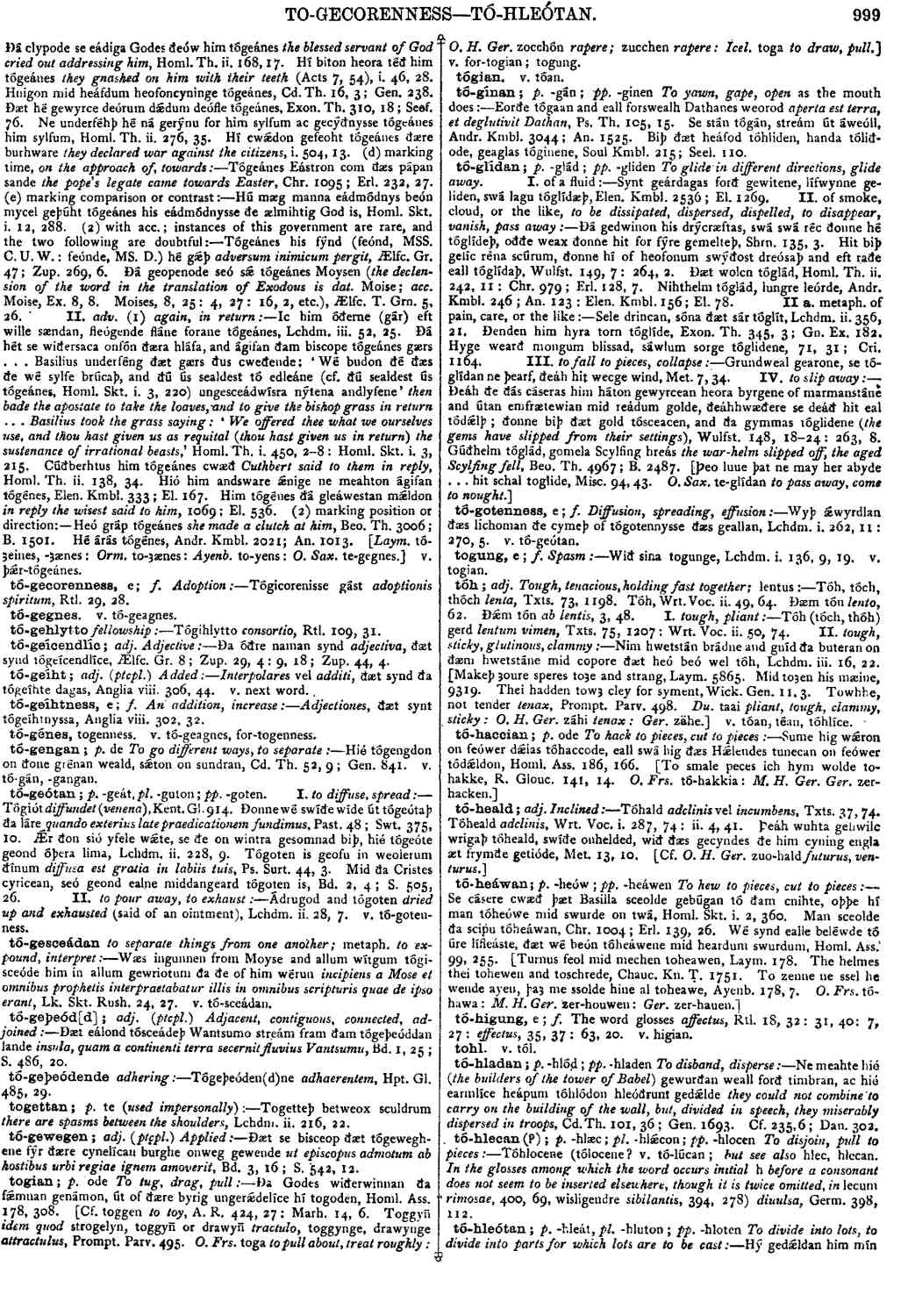tó-glídan
- verb [ strong ]
-
Synt geárdagas forð gewitene, lífwynne geliden, swá lagu tóglídæþ,
- Elen. Kmbl. 2536 ; El. 1269.
- Ða gedwinon his drýcræftas, swá swá rec ðonne hé tóglídeþ, oððe weax ðonne hit for fýre gemelteþ. Shrn. 135, 3.
-
Hit biþ gelíc réna scúrum, ðonne hí of heofonum swýðost dreósaþ and eft raðe eall tóglídaþ,
- Wulfst. 149, 7 : 264, 2.
-
Ðæt wolcn tóglád,
- Homl. Th. ii. 242, II : Chr. 979 ; Erl. 128, 7.
-
Nihthelm tóglád, lungre leórde,
- Andr. Kmbl. 246 ; An. 123 : Elen. Kmbl. 156; El. 78.
- II a. metaph. of pain, care, or the like
Sele drincan, sóna ðæt sár tðglít. Lchdm. ii. 356, 21.
-
Ðenden him hyra torn tóglíde. Exon. Th. 345,
- 3; Gn. Ex. 182.
-
Hyge wearð mongum blissad, sáwlum sorge tóglidene,
- 71, 31; Cri. 1164.
- Grundweal gearone, se tó-glídan ne þearf, ðeáh hit wecge wind. Met. 7, 34.
-
Ðeáh ðe ðás cáseras him háton gewyrcean heora byrgene of marmanstáne and útan emfrætewian mid reádum golde, ðeáhhwæðere se deáð hit eal tódǽlþ ; ðonne biþ ðæt gold tósceacen, and ða gymmas tóglidene (
the gems have slipped from their setting
s),- Wulfst. 148, 18-24: 263, 8.
-
Gúðhelm tóglád, gomela Scylfing hreás
the war-helm slipped off, the aged Scylfing fell.
- Beo. Th. 4967; B. 2487.
- [Þeo luue þat ne may her abyde . . . hit schal toglide,
- Misc. 94,
43.
- O. Sax. te-glídan to pass away, come to nought
Bosworth, Joseph. “tó-glídan.” In An Anglo-Saxon Dictionary Online, edited by Thomas Northcote Toller, Christ Sean, and Ondřej Tichy. Prague: Faculty of Arts, Charles University, 2014. https://bosworthtoller.com/30710.
Checked: 0